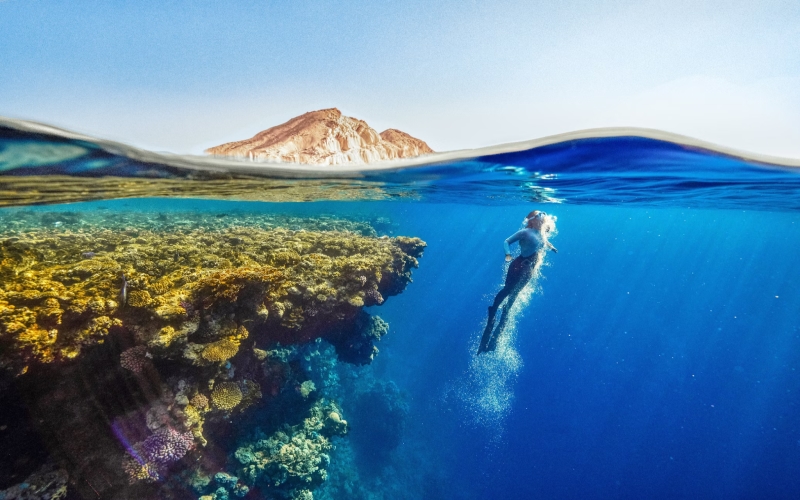Diving into the underwater world is an exhilarating adventure, offering the opportunity to explore breathtaking marine landscapes, encounter fascinating marine life, and experience the serenity of the ocean’s depths. However, before taking the plunge into scuba diving, it’s essential to understand the basics, safety protocols, and equipment involved. So grab your goggles and put on your Seiko divers watch price Philippines because in this comprehensive guide, we’ll cover everything you need to know to embark on your diving journey with confidence and excitement.
Understanding Scuba Diving:
Scuba diving is a form of underwater diving where divers use a self-contained underwater breathing apparatus (scuba) to breathe while exploring the underwater environment. Unlike snorkeling, which allows individuals to stay at the water’s surface, scuba diving enables divers to descend to greater depths and experience the wonders hidden beneath the waves.
Training and Certification:
Before venturing into scuba diving, it’s imperative to undergo proper training and obtain certification from a recognized diving organization such as PADI (Professional Association of Diving Instructors) or NAUI (National Association of Underwater Instructors). Diving certification courses typically include classroom instruction, pool training sessions, and open-water dives under the supervision of a certified instructor. These courses cover essential topics such as diving theory, equipment usage, safety procedures, and environmental awareness.
Equipment Essentials:
Scuba diving requires specialized equipment to ensure safety, comfort, and efficient underwater navigation. Some of the essential diving gear includes:
- Dive Mask: Provides a clear field of vision and seals around the nose to allow for equalization.
- Snorkel: Allows divers to breathe at the surface without wasting tank air.
- Wetsuit or Drysuit: Provides thermal insulation and protection against abrasions.
- Buoyancy Control Device (BCD): Allows divers to achieve neutral buoyancy and control their ascent and descent.
- Regulator: Supplies air from the tank to the diver’s mouthpiece for breathing.
- Dive Computer: Monitors depth, time, and decompression limits to ensure safe diving practices.
- Fins: Enhance propulsion and maneuverability underwater.
Safety Precautions:
Safety should always be the top priority when diving. Before each dive, conduct a thorough equipment check to ensure everything is in proper working order. Never dive alone – always dive with a buddy, and maintain close communication throughout the dive. Follow the “buddy check” procedure before entering the water to verify each other’s equipment and readiness. Additionally, adhere to dive tables or dive computer recommendations to avoid decompression sickness and other diving-related injuries.
Environmental Conservation:
As stewards of the ocean, divers have a responsibility to protect and preserve marine ecosystems. Practice environmentally conscious diving by avoiding contact with delicate coral reefs and marine life, refraining from touching or collecting marine specimens, and disposing of waste properly. Participate in underwater clean-up initiatives and support marine conservation efforts to ensure the health and sustainability of our oceans for future generations.
Choosing Dive Destinations:
When selecting dive destinations, consider factors such as water conditions, marine biodiversity, and accessibility. Popular dive destinations around the world include the Great Barrier Reef in Australia, the Maldives, the Red Sea in Egypt, and the Caribbean Sea. Research dive operators and dive sites in advance, and choose reputable operators with experienced dive guides and a strong commitment to safety and environmental conservation.
Conclusion:
Scuba diving offers an unparalleled opportunity to explore the wonders of the underwater world, but it requires preparation, training, and adherence to safety protocols. By understanding the basics of scuba diving, obtaining proper certification, investing in quality equipment, prioritizing safety, and practicing environmental conservation, you can embark on your diving adventures with confidence, excitement, and respect for the ocean’s fragile ecosystem. So, get ready to take the plunge into a world of adventure and discovery beneath the waves!

